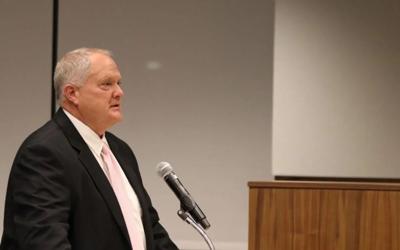
San Clemente City Manager Andy Hall recently sat down with the San Clemente Times to discuss several major initiatives shaping the city’s future — from restoring the beaches and rebuilding the Beach Trail to managing new hotel projects and preparing for the 2028 Los Angeles Summer Olympics.
According to Hall, two themes continue to stand out in recent community conversations: the coastline and fire safety.
“Residents want to know what’s happening with sand replenishment,” Hall said. “Most of the questions have been about beach preservation and fire safety.”
Ongoing Efforts to Protect the Coastline
Hall emphasized that multiple programs are underway to combat erosion and improve beach conditions. The Army Corps of Engineers project — the city’s largest coastal restoration effort — calls for roughly 200,000 cubic yards of sand to be placed near the Pier between T-Street and Linda Lane every five to six years.
“We’ve seen how far that sand has traveled and filled in exactly as expected,” Hall noted. “It’s doing what it was designed to do.”
Still, maintaining funding for those efforts remains an ongoing challenge. “Right now, we don’t have future funding secured,” he said. “We’re looking for resources to keep it going.”
In addition to the federal effort, San Clemente’s smaller SCOUP program has already delivered 37,000 cubic yards of sand to North Beach. Larger regional partnerships through OCTA and SANDAG could add nearly one million cubic yards of sand to the region’s beaches over the next several years.
“We’re looking under every rock to find sand,” Hall said. “The challenge is keeping those projects funded long-term.”
Beach Trail Work and Access
Hall also addressed the temporary closure of the Beach Trail between North Beach and Linda Lane, which has frustrated many residents. He acknowledged the inconvenience but explained that the work is crucial to ensure long-term stability.
“It’s a construction site, so access will be limited for the next several months,” Hall said. “But once the retaining wall is completed, we should see far fewer closures in the future.”
He added that the end result will be worth the disruption: “When it’s all done, we’re going to be happy. The slope will be stabilized, and the trail will be much more reliable.”
Hotel Development Updates
San Clemente currently has five hotel projects in various stages of development. The Del Mar project downtown is the closest to breaking ground, while the Pier Bowl hotel remains early in its planning. The Hanson Hotel in North Beach has been delayed roughly a year due to an environmental appeal.
Hall said residents generally support the idea of adding quality lodging to strengthen local tourism. “People understand the value of having nice hotels in the community,” he said. “They just want to make sure the city minimizes neighborhood impacts.”
Looking Ahead to 2028
Hall also touched on early preparations for San Clemente’s 100th anniversary in 2028, which will coincide with the 50th Ocean Festival and the Olympic surfing events at Lower Trestles.
“It’s an incredible opportunity to come together as a community,” he said. “If we plan it right, we can celebrate both our city’s centennial and the Olympics in a big way.”
Committees are expected to form next year to coordinate local celebrations, Olympic outreach, and logistics — involving city departments, the Chamber of Commerce, and community groups.
Listening to Residents
For Hall, these community conversations reflect a broader goal of staying connected with residents.
“We learn so much more when we just listen,” he said. “People tell us what matters to them — and that’s really valuable.”
He added that hearing directly from residents continues to guide the city’s priorities. “It’s great to understand what people care about most,” Hall said. “That’s the big takeaway for me.”
Credit SC Times and Picket Fence Media. Full article at https://www.picketfencemedia.com/sanclementetimes/eye-on-sc/hall-shares-updates-on-beach-hotel-projects-trail-work/article_580a9a87-1f11-47a8-b25b-478c02e242d8.html Please subscribe to their newspaper.